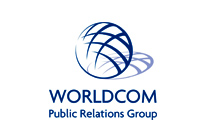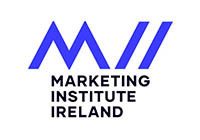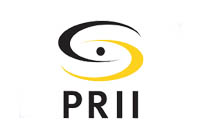
Why Irish businesses and industries should advocate voting in the EU Elections
Across all continents, 50 nations will hold elections in 2024. Two billion people — one in four of the world’s population — will be voting. Not since the ancient Greeks established democracy in the 6th century BC, will so many people on earth cast a ballot in a year as in 2024.
Within the European Union (EU) dynamic policy shapes industries and economies. The value of voting extends beyond individual citizens and reaches right to the very core of businesses across member states. Irish companies and industries in various sectors such as technology, renewable energy, healthcare, and pharmaceutical will all feel the impact of the coming months.
With the European Parliament elections from 6-9 June, some 400 million citizens will be eligible to vote. Here in Ireland, we go to the polls to elect our local and MEP representatives on Friday 7 June. Our last such election was held back in 2019 and turnout was 50.2%. When thejournal.ie polled people back in February, a massive 83% said “they were very likely to vote in the upcoming EP elections in June”.
At a macro level, the European Parliament results — and subsequent back-room negotiations among EU leaders — will determine the line-up of the next European Commission. President Ursula von der Leyen remains (unofficially) the bookies’ favourite to stay on for another five years, yet she will get a new European Council counterpart. It is not only a civic responsibility, it is also one of strategic imperative to engage with European institutions. Advocating for participation in the upcoming European elections is central to this.
Here’s why:
Sustainability of course:
Take the ambitious European Green Deal, and offshoot policies like the Corporate Sustainability Reporting Directive (CSRD) and Corporate Sustainability Due Diligence Directive (CSDD).
Companies will soon be expected to report on specific sustainability factors using a single EU-wide reporting standard instead of the voluntary standards used today. In principle, the CSRD is likely to bring about an organisational shift within companies to ensure that sufficient resources are in place to meet the new requirements. Being an active player and having a say in this discourse is an essential part of the social contract within the EU.
Regulatory Influence:
At the heart of the EU lies an abundance of regulations and directives that govern industries. Decisions made at a Brussels level reverberate through boardrooms and factory floors across member states. By participating in the electoral process, companies can voice their interests, shape policy agendas, and ensure that regulations align with their needs and aspirations.
Nowadays, organisations are looking to Brussels in a much more positive manner. Change is occurring and by actively engaging at a policy level, one can effectively shape policy that supports business growth.
Market Stability and Growth:
Stability and predictability are paramount for businesses to thrive. The outcomes of these EU elections have the potential to either foster an environment conducive to growth or introduce uncertainties that could impede investments and expansion plans. By actively participating in the democratic process, companies contribute to the stability of the market, bolster investor confidence, and pave the way for sustained economic growth.
License to Operate:
In an interconnected world where social and environmental responsibilities are increasingly scrutinised, a social license to operate is crucial. Governments play a key role in societal and economic transformation. Organisations aligned with this can be part of shaping the change, rather than trying to prevent it.
The EU electorate demands transparency, accountability, and sustainability from businesses. By engaging in EU elections and advocating for ethical business practices, companies not only safeguard their license to operate, but also enhance their reputation and brand value.
People Power:
Beyond business interests lies the fundamental principle of democracy: the power of the people. Encouraging employees, customers, and stakeholders to exercise their democratic rights is not only a moral imperative – it is also a strategic move. An engaged electorate ensures a vibrant democracy, and fosters social cohesion, creating a conducive environment for businesses to thrive.
Collective Prosperity:
Ultimately, the prosperity of businesses is intertwined with the well-being of society as a whole. By advocating for voter participation and supporting policies that prioritise inclusive growth, Irish companies can contribute to building a more resilient, equitable, and prosperous Europe for generations to come.
At Springboard, we’re committed to sparking conversations, raising pertinent questions, and partnering with purpose-led businesses to solve complex problems, protect reputations, and drive COMMUNICATIONS FOR POSITIVE CHANGE. So, as we stand on the cusp of yet another pivotal moment in European history, let us recognise the dual role we play: as stewards of industry and as champions of democracy. Let us communicate, let us advocate, and above all, let’s vote. The future of Europe depends on it.
Feel free to contact nora@springboardcommunications.ie to learn more about the value of actively engaging in the European project.
For more stories like this sign up for our Insights newsletter ›
BACK TO TOP









